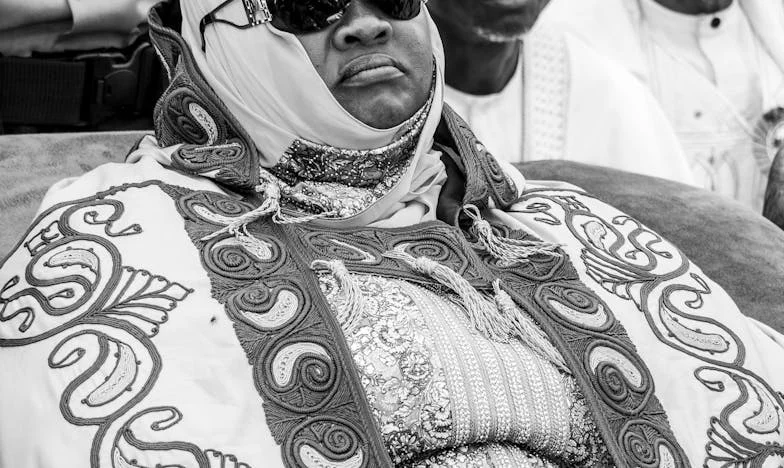When Blood Isn’t Thicker: My Mother’s Choice
“You’re being unfair, Mom! Why do you always take Aunt Susan’s side?” My voice cracked as I stood in the middle of our living room, fists clenched, chest heaving. Rain hammered the windows behind me, echoing the storm raging inside. Mom barely looked up from the bills stacked on the kitchen table. “It’s not about sides, Emily. Susan needs help right now. She’s your family.”
Family. That word felt like a joke. My mom had always preached about loyalty, but it seemed that loyalty only ran one way—toward her sister, never toward me. I was seventeen, a senior in high school, and all I wanted was for my mother to finally put me first. But that night, like so many others, I watched her gather her purse, keys, and that familiar look of resignation. “I’ll be back late. Lock the door.”
Aunt Susan wasn’t just my mom’s sister; she was her shadow, her burden. For as long as I could remember, Susan drifted in and out of our lives—evicted from her latest apartment, crashing on our couch, borrowing money she’d never repay. Mom always picked up the pieces, no matter the cost. Dad used to call it “the endless rescue mission” before he left us for good.
I stared at the front door long after Mom left, the silence heavier than any argument. My phone buzzed—a text from my best friend, Rachel. “You coming over to study?” I typed back a quick excuse. I couldn’t face anyone, not with my world cracking open again.
The next morning, I found the kitchen a wreck—dirty dishes, coffee stains, a sticky note: “Make yourself breakfast. Love you, Mom.” I crumpled it up, fighting tears. Why did she always choose Susan’s chaos? Didn’t she see how much it hurt me?
At school, I kept my head down. I couldn’t focus on calculus or the upcoming college applications. All I could think about was the argument replaying in my mind, Mom’s tired eyes, the way she always seemed to vanish when I needed her the most. Rachel caught up with me after lunch, worry etched on her face. “You okay? You’ve been off for weeks.”
I shrugged. “Just family stuff. It’s stupid.”
“Doesn’t sound stupid if it’s making you this sad.”
I wanted to tell her everything, but the words stuck. How could I explain that my own mother chose her sister’s needs over mine again and again? That I felt invisible in my own home?
That weekend, everything came to a head. I’d spent days rehearsing what I’d say to Mom, how I’d finally make her see me. But when she came home late Saturday night, eyes rimmed red, I froze. She dropped her purse on the floor, shoes half off, and slumped into a chair. “Susan’s in trouble again,” she whispered, voice barely audible. “She got fired. She… she’s talking about moving in for a while.”
My heart stopped. “No. No, Mom. I can’t do this anymore.”
She looked at me, pleading. “Em, she’s my sister. She has nowhere else to go.”
“What about me? When do I matter?”
She reached for my hand, but I pulled away. “You matter. Of course you do.”
Tears spilled down my face. “Then why don’t you ever show it? Why does she always come first?”
The next morning, I packed a bag and went to Rachel’s. Her mom hugged me tight and said nothing, just let me cry on their couch. For the first time, I felt seen. Heard. Maybe loved.
Days turned into weeks. Mom called, texted, begged me to come home. She said Susan was sick and needed us. I wanted to scream, “What about my needs? What about all the times I needed you?” But I stayed silent, numb. Rachel’s family let me stay, and I started to see what life could look like if I wasn’t just an afterthought.
Thanksgiving came, and Rachel’s mom insisted I invite Mom. She showed up, looking smaller than I remembered, holding a pumpkin pie. We sat in the backyard, leaves swirling around our feet.
“I’m sorry, Em,” she said quietly. “I know I haven’t been the mother you needed. I just… I feel responsible for Susan. Ever since our parents died, she’s all I have.”
I wiped my eyes. “But I’m your daughter. Don’t I deserve you, too?”
She nodded, tears slipping down her cheeks. “I don’t know how to balance it. I’m scared if I let Susan go, something terrible will happen. And then I’d lose both of you.”
I wanted to forgive her. I wanted to believe things could change. But the wound was deep, raw. I didn’t know how to let go of the hurt.
Months passed. I started therapy, learned to set boundaries. I went home for short visits, but I never stayed long. Susan still drifted in and out, but now, so did I. When I left for college, Mom hugged me so tight I thought her bones would break. “I love you, Emily. I’m trying.”
I still don’t have all the answers. Sometimes I wonder if family really means loyalty, or if it’s something you have to choose, again and again. Is blood supposed to bind us, or can it suffocate us, too?
Would you forgive your mother for choosing someone else? Or is there a point where you have to choose yourself first?
